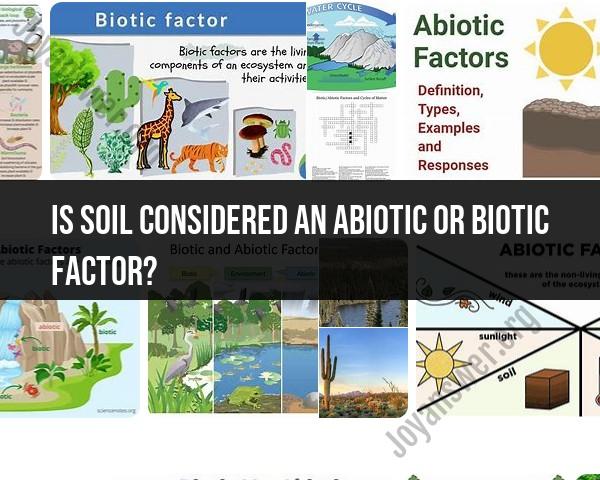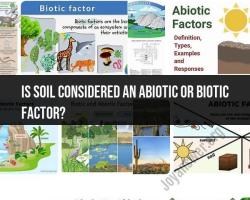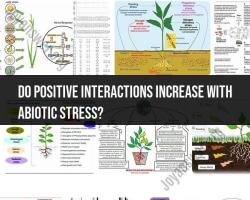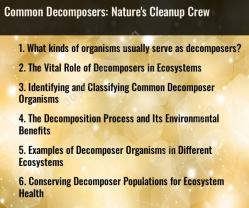Is soil considered an abiotic or biotic factor?
Soil is considered an abiotic factor. Abiotic factors are non-living components of an ecosystem, and soil fits into this category because it consists of minerals, water, air, and organic matter, but it does not contain living organisms in the same way that biotic factors such as plants, animals, and microorganisms do. However, soil does support and interact with biotic factors by providing nutrients, habitat, and support for plant roots, as well as serving as a habitat for various microorganisms.
Soil: A Complex Mix of Abiotic and Biotic Elements
Soil occupies an interesting space between abiotic and biotic factors. Here's a breakdown:
1. Classification:
- Abiotic: In its primary composition, soil consists of non-living materials like rock fragments, minerals, air, and water. These components form the foundation of soil structure and hold no life themselves.
- Biotic: However, soil also harbors a diverse community of living organisms, from microscopic bacteria and fungi to insects, earthworms, and even small mammals. These organisms contribute significantly to soil health and function.
Therefore, soil cannot be strictly classified as either abiotic or biotic. It's a complex mixture of both, making it a biogeochemical system.
2. Abiotic Contribution to Ecosystems:
As an abiotic factor, soil plays crucial roles in ecosystems:
- Anchoring plants: Provides mechanical support for plant roots, enabling them to stand tall and absorb nutrients.
- Storing and filtering water: Porous structure allows water to infiltrate and be stored for plant use, also filtering pollutants and impurities.
- Regulating temperature: Acts as an insulator, maintaining stable temperatures for root growth and microbial activity.
- Providing nutrients: Minerals weathered from rocks and decomposed organic matter provide essential nutrients for plant growth.
- Supporting diverse life: Creates a habitat for a vast array of organisms, contributing to biodiversity and ecosystem function.
3. Biotic Characteristics in Soil:
While non-living in itself, soil exhibits some "biotic-like" characteristics due to the interactions and activities of the organisms within it:
- Nutrient cycling: Living organisms decompose organic matter, releasing nutrients essential for plant growth, a vital metabolic process similar to respiration in living beings.
- Soil aggregation: Organisms like earthworms create channels and mix soil particles, improving aeration and drainage, similar to how muscles work in organisms to create movement.
- Adaptation and response: The soil microbial community adapts to environmental changes, optimizing nutrient cycling and soil health, mimicking how some organisms adapt to survive.
However, it's important to remember that these characteristics are emergent properties arising from the combined activity of living organisms within the soil, not inherent properties of the soil itself.
In conclusion, soil exists at the intersection of abiotic and biotic worlds, playing a key role in ecosystems through both its non-living components and the vital community of life it sustains.




